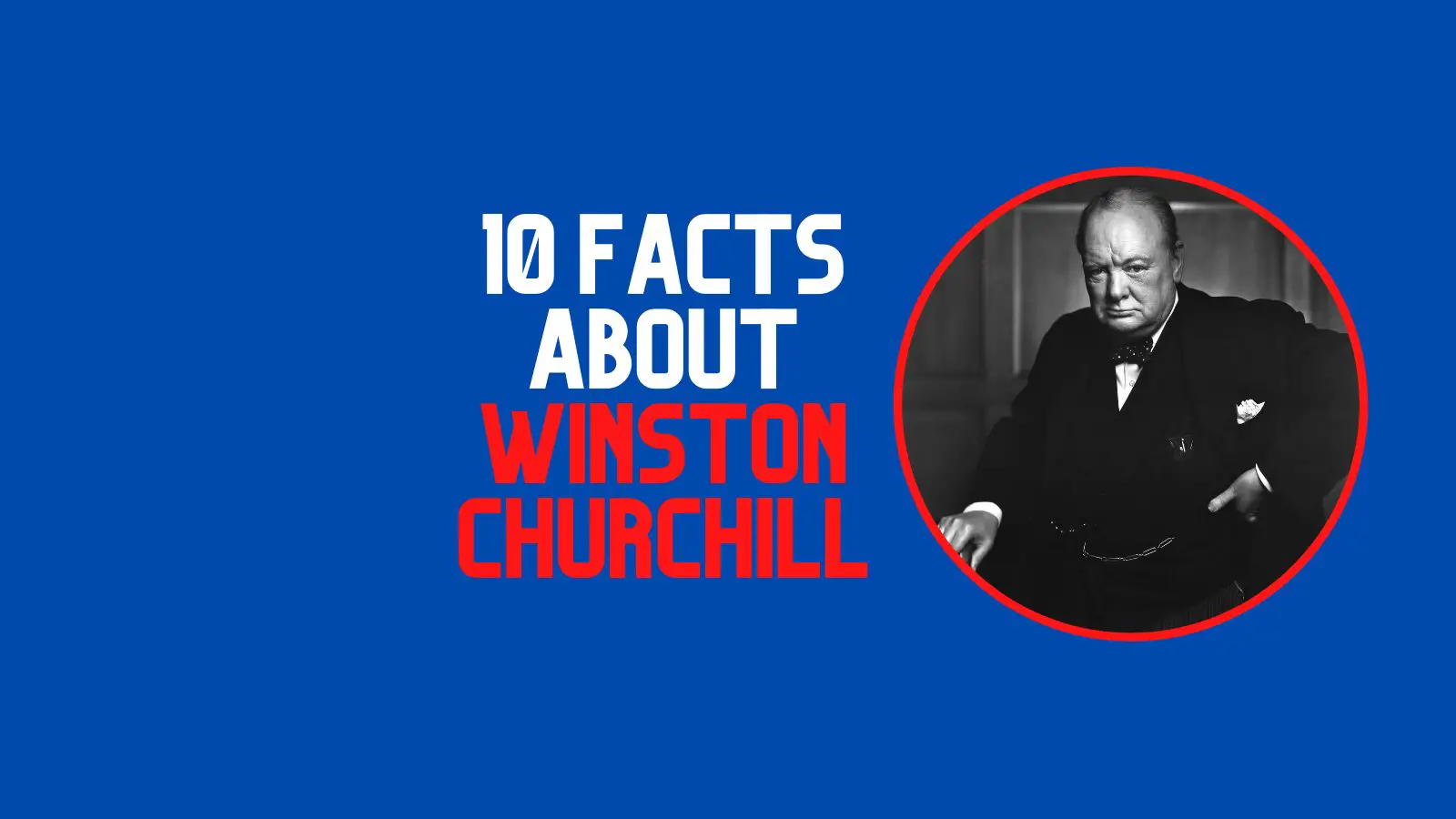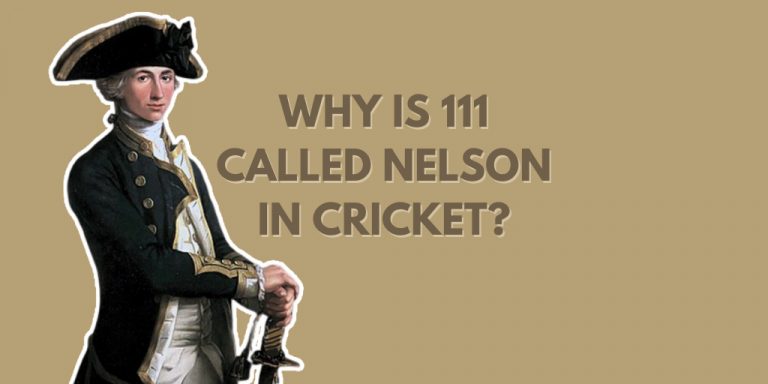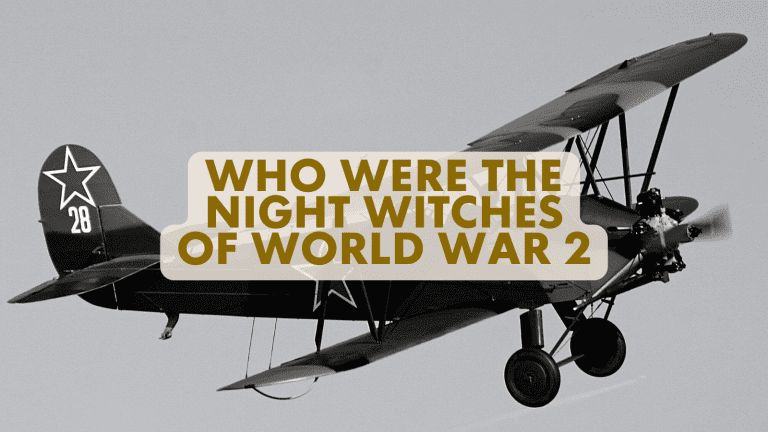10 Facts about Winston Churchill
Sir Winston Churchill is known best today for leading Britain through most of World War 2 as Prime Minister. He led the country to victory with speeches that inspired the nation and kept morale high with poignant quotes such as, “Hitler knows that he will have to break us in this island or lose the war. If we can stand up to him, all of Europe may be free, and life of the world may move forwards into broad, sunlit uplands.” But there was much more to Churchill than his leadership skills; he had a long and complex life with many incredible stories.
[/et_pb_text][/et_pb_column][/et_pb_row][et_pb_row _builder_version=”4.15.0″ _module_preset=”default” global_colors_info=”{}”][et_pb_column type=”4_4″ _builder_version=”4.15.0″ _module_preset=”default” global_colors_info=”{}”][et_pb_text _builder_version=”4.15.0″ _module_preset=”default” global_colors_info=”{}”]1. He was half American and was born in Blenheim Palace
[/et_pb_text][/et_pb_column][/et_pb_row][et_pb_row _builder_version=”4.15.0″ _module_preset=”default” column_structure=”1_5,3_5,1_5″][et_pb_column _builder_version=”4.15.0″ _module_preset=”default” type=”1_5″][/et_pb_column][et_pb_column _builder_version=”4.15.0″ _module_preset=”default” type=”3_5″][et_pb_image src=”http://historywithhenry.com/wp-content/uploads/2022/04/1-1.png” _builder_version=”4.15.0″ _module_preset=”default” alt=”Facts about Winston Churchill” title_text=”1″ hover_enabled=”0″ sticky_enabled=”0″][/et_pb_image][/et_pb_column][et_pb_column _builder_version=”4.15.0″ _module_preset=”default” type=”1_5″][/et_pb_column][/et_pb_row][et_pb_row _builder_version=”4.15.0″ _module_preset=”default” global_colors_info=”{}”][et_pb_column type=”4_4″ _builder_version=”4.15.0″ _module_preset=”default” global_colors_info=”{}”][et_pb_text _builder_version=”4.15.0″ _module_preset=”default” global_colors_info=”{}”]Churchill came from a curious background. His wealthy aristocratic father, Randolph Churchill, met his mother, Jennie Jerome, an American who was the daughter of wealthy businessman Leonard Jerome. The pair met at a shipboard party and had their son Winston on November 30th, 1874, at Blenheim Palace, the family’s ancestral home. A direct descendant of the Duke of Marlborough, Winston Churchill went to prestigious schools but was poor academically throughout his childhood. His performance improved following his enrolment in a military school.
[/et_pb_text][/et_pb_column][/et_pb_row][et_pb_row _builder_version=”4.15.0″ _module_preset=”default” global_colors_info=”{}”][et_pb_column type=”4_4″ _builder_version=”4.15.0″ _module_preset=”default” global_colors_info=”{}”][et_pb_text _builder_version=”4.15.0″ _module_preset=”default” global_colors_info=”{}”]2. He escaped from a Prisoner of War Camp
[/et_pb_text][/et_pb_column][/et_pb_row][et_pb_row _builder_version=”4.15.0″ _module_preset=”default” column_structure=”1_5,3_5,1_5″][et_pb_column _builder_version=”4.15.0″ _module_preset=”default” type=”1_5″][/et_pb_column][et_pb_column _builder_version=”4.15.0″ _module_preset=”default” type=”3_5″][et_pb_image src=”http://historywithhenry.com/wp-content/uploads/2022/04/2-1-1.jpg” _builder_version=”4.15.0″ _module_preset=”default” alt=”Facts about Winston Churchill” title_text=”2″ hover_enabled=”0″ sticky_enabled=”0″][/et_pb_image][/et_pb_column][et_pb_column _builder_version=”4.15.0″ _module_preset=”default” type=”1_5″][/et_pb_column][/et_pb_row][et_pb_row _builder_version=”4.15.0″ _module_preset=”default” global_colors_info=”{}”][et_pb_column type=”4_4″ _builder_version=”4.15.0″ _module_preset=”default” global_colors_info=”{}”][et_pb_text _builder_version=”4.15.0″ _module_preset=”default” global_colors_info=”{}”]3. First Lord of the Admiralty
[/et_pb_text][/et_pb_column][/et_pb_row][et_pb_row _builder_version=”4.15.0″ _module_preset=”default” column_structure=”1_5,3_5,1_5″][et_pb_column _builder_version=”4.15.0″ _module_preset=”default” type=”1_5″][/et_pb_column][et_pb_column _builder_version=”4.15.0″ _module_preset=”default” type=”3_5″][et_pb_image src=”http://historywithhenry.com/wp-content/uploads/2022/04/3-1.jpg” _builder_version=”4.15.0″ _module_preset=”default” alt=”Facts about Winston Churchill” title_text=”3″ hover_enabled=”0″ sticky_enabled=”0″][/et_pb_image][/et_pb_column][et_pb_column _builder_version=”4.15.0″ _module_preset=”default” type=”1_5″][/et_pb_column][/et_pb_row][et_pb_row _builder_version=”4.15.0″ _module_preset=”default” global_colors_info=”{}”][et_pb_column type=”4_4″ _builder_version=”4.15.0″ _module_preset=”default” global_colors_info=”{}”][et_pb_text _builder_version=”4.15.0″ _module_preset=”default” global_colors_info=”{}”]4. The Gallipoli Disaster tainted him forever
[/et_pb_text][/et_pb_column][/et_pb_row][et_pb_row _builder_version=”4.15.0″ _module_preset=”default” column_structure=”1_5,3_5,1_5″][et_pb_column _builder_version=”4.15.0″ _module_preset=”default” type=”1_5″][/et_pb_column][et_pb_column _builder_version=”4.15.0″ _module_preset=”default” type=”3_5″][et_pb_image src=”http://historywithhenry.com/wp-content/uploads/2022/04/4-1-1.jpg” _builder_version=”4.15.0″ _module_preset=”default” alt=”Facts about Winston Churchill” title_text=”4″ hover_enabled=”0″ sticky_enabled=”0″][/et_pb_image][/et_pb_column][et_pb_column _builder_version=”4.15.0″ _module_preset=”default” type=”1_5″][/et_pb_column][/et_pb_row][et_pb_row _builder_version=”4.15.0″ _module_preset=”default” global_colors_info=”{}”][et_pb_column type=”4_4″ _builder_version=”4.15.0″ _module_preset=”default” global_colors_info=”{}”][et_pb_text _builder_version=”4.15.0″ _module_preset=”default” global_colors_info=”{}”]5. Churchill was always short of money
[/et_pb_text][/et_pb_column][/et_pb_row][et_pb_row _builder_version=”4.15.0″ _module_preset=”default” column_structure=”1_5,3_5,1_5″][et_pb_column _builder_version=”4.15.0″ _module_preset=”default” type=”1_5″][/et_pb_column][et_pb_column _builder_version=”4.15.0″ _module_preset=”default” type=”3_5″][et_pb_image src=”http://historywithhenry.com/wp-content/uploads/2022/04/5-1-1.jpg” _builder_version=”4.15.0″ _module_preset=”default” alt=”Facts about Winston Churchill” title_text=”5″ hover_enabled=”0″ sticky_enabled=”0″][/et_pb_image][/et_pb_column][et_pb_column _builder_version=”4.15.0″ _module_preset=”default” type=”1_5″][/et_pb_column][/et_pb_row][et_pb_row _builder_version=”4.15.0″ _module_preset=”default” global_colors_info=”{}”][et_pb_column type=”4_4″ _builder_version=”4.15.0″ _module_preset=”default” global_colors_info=”{}”][et_pb_text _builder_version=”4.15.0″ _module_preset=”default” global_colors_info=”{}”]His life away from public office was equally chaotic due to his lavish lifestyle. A man of luxurious taste, he enjoyed silk clothing and investing in the stock market. As a result, Churchill regularly borrowed money from the bank, owing interest payments, and paying his taxes late.
Despite this, he would buy Chartwell, a country house in Kent, for £5000 and pay much more to rebuild sections of the dated home that had been damaged by vast areas of dry rot.
6. Churchill was an artist
[/et_pb_text][/et_pb_column][/et_pb_row][et_pb_row _builder_version=”4.15.0″ _module_preset=”default” column_structure=”1_5,3_5,1_5″][et_pb_column _builder_version=”4.15.0″ _module_preset=”default” type=”1_5″][/et_pb_column][et_pb_column _builder_version=”4.15.0″ _module_preset=”default” type=”3_5″][et_pb_image src=”http://historywithhenry.com/wp-content/uploads/2022/04/6-1.jpg” _builder_version=”4.15.0″ _module_preset=”default” alt=”Facts about Winston Churchill” title_text=”6″ hover_enabled=”0″ sticky_enabled=”0″][/et_pb_image][/et_pb_column][et_pb_column _builder_version=”4.15.0″ _module_preset=”default” type=”1_5″][/et_pb_column][/et_pb_row][et_pb_row _builder_version=”4.15.0″ _module_preset=”default” global_colors_info=”{}”][et_pb_column type=”4_4″ _builder_version=”4.15.0″ _module_preset=”default” global_colors_info=”{}”][et_pb_text _builder_version=”4.15.0″ _module_preset=”default” global_colors_info=”{}”]After his removal as First Lord Admiralty in 1915, Winston Churchill travelled with his family on holiday, where he was introduced to painting. He later in life admitted that it helped to revive his spirits and was a hobby he carried throughout the rest of his life, completing over 500 pieces of artwork ranging from the pond in his garden to the faraway places that he travelled to throughout his political career.
[/et_pb_text][/et_pb_column][/et_pb_row][et_pb_row _builder_version=”4.15.0″ _module_preset=”default” global_colors_info=”{}”][et_pb_column type=”4_4″ _builder_version=”4.15.0″ _module_preset=”default” global_colors_info=”{}”][et_pb_text _builder_version=”4.15.0″ _module_preset=”default” global_colors_info=”{}”]7. He wrote award-winning books
[/et_pb_text][/et_pb_column][/et_pb_row][et_pb_row _builder_version=”4.15.0″ _module_preset=”default” column_structure=”1_5,3_5,1_5″][et_pb_column _builder_version=”4.15.0″ _module_preset=”default” type=”1_5″][/et_pb_column][et_pb_column _builder_version=”4.15.0″ _module_preset=”default” type=”3_5″][et_pb_image src=”http://historywithhenry.com/wp-content/uploads/2022/04/7-1.jpg” _builder_version=”4.15.0″ _module_preset=”default” alt=”Facts about Winston Churchill” title_text=”7″ hover_enabled=”0″ sticky_enabled=”0″][/et_pb_image][/et_pb_column][et_pb_column _builder_version=”4.15.0″ _module_preset=”default” type=”1_5″][/et_pb_column][/et_pb_row][et_pb_row _builder_version=”4.15.0″ _module_preset=”default” global_colors_info=”{}”][et_pb_column type=”4_4″ _builder_version=”4.15.0″ _module_preset=”default” global_colors_info=”{}”][et_pb_text _builder_version=”4.15.0″ _module_preset=”default” global_colors_info=”{}”]Churchill earned the majority of his income from writing. Churchill published his first book in 1898. It was 55 years and 43 books later that he was awarded the Nobel Prize for Literature.
[/et_pb_text][/et_pb_column][/et_pb_row][et_pb_row _builder_version=”4.15.0″ _module_preset=”default” global_colors_info=”{}”][et_pb_column type=”4_4″ _builder_version=”4.15.0″ _module_preset=”default” global_colors_info=”{}”][et_pb_text _builder_version=”4.15.0″ _module_preset=”default” global_colors_info=”{}”]8. He invented the term “Iron Curtain”
[/et_pb_text][/et_pb_column][/et_pb_row][et_pb_row _builder_version=”4.15.0″ _module_preset=”default” column_structure=”1_5,3_5,1_5″][et_pb_column _builder_version=”4.15.0″ _module_preset=”default” type=”1_5″][/et_pb_column][et_pb_column _builder_version=”4.15.0″ _module_preset=”default” type=”3_5″][et_pb_image src=”http://historywithhenry.com/wp-content/uploads/2022/04/8-1.jpg” _builder_version=”4.15.0″ _module_preset=”default” alt=”Facts about Winston Churchill” title_text=”8″ hover_enabled=”0″ sticky_enabled=”0″][/et_pb_image][/et_pb_column][et_pb_column _builder_version=”4.15.0″ _module_preset=”default” type=”1_5″][/et_pb_column][/et_pb_row][et_pb_row _builder_version=”4.15.0″ _module_preset=”default” global_colors_info=”{}”][et_pb_column type=”4_4″ _builder_version=”4.15.0″ _module_preset=”default” global_colors_info=”{}”][et_pb_text _builder_version=”4.15.0″ _module_preset=”default” global_colors_info=”{}”]Winston Churchill’s involvement in the Second World War is the most recognised part of his life amongst the public today, but his influence went beyond his stints as Prime Minister.
He was the first leader to refer to the “Iron Curtain” in the run-up to the Cold War as he sent a telegram to President Truman describing the developing divide in Central Europe. He would use the phrase again in correspondence with Joseph Stalin, writing that it felt like an iron curtain was coming down upon British forces in Bucharest.
[/et_pb_text][/et_pb_column][/et_pb_row][et_pb_row _builder_version=”4.15.0″ _module_preset=”default” global_colors_info=”{}”][et_pb_column type=”4_4″ _builder_version=”4.15.0″ _module_preset=”default” global_colors_info=”{}”][et_pb_text _builder_version=”4.15.0″ _module_preset=”default” global_colors_info=”{}”]9. He had a stroke while in the office
[/et_pb_text][/et_pb_column][/et_pb_row][et_pb_row _builder_version=”4.15.0″ _module_preset=”default” column_structure=”1_5,3_5,1_5″][et_pb_column _builder_version=”4.15.0″ _module_preset=”default” type=”1_5″][/et_pb_column][et_pb_column _builder_version=”4.15.0″ _module_preset=”default” type=”3_5″][et_pb_image src=”http://historywithhenry.com/wp-content/uploads/2022/04/9-1-1.jpg” _builder_version=”4.15.0″ _module_preset=”default” alt=”Facts about Winston Churchill” title_text=”9″ hover_enabled=”0″ sticky_enabled=”0″][/et_pb_image][/et_pb_column][et_pb_column _builder_version=”4.15.0″ _module_preset=”default” type=”1_5″][/et_pb_column][/et_pb_row][et_pb_row _builder_version=”4.15.0″ _module_preset=”default” global_colors_info=”{}”][et_pb_column type=”4_4″ _builder_version=”4.15.0″ _module_preset=”default” global_colors_info=”{}”][et_pb_text _builder_version=”4.15.0″ _module_preset=”default” global_colors_info=”{}”]After his stint as Prime Minister in the Second World War, he was voted back into the position six years later. He served until he was 80 years old.
During this run as Prime Minister, concerns about Churchill’s health were raised by those around him. King George VI suggested that Churchill may have to step down, as Churchill struggled after numerous minor strokes. Ultimately George VI would pass away before Churchill.
He would suffer a severe stroke in 1953 that left him paralysed down one side; this would be the final step that led to his resignation from his position as Prime Minister. His health would continue to decline, his mobility slowing due to his paralysis and a fall in Monte Carlo in 1962 that led to 3 weeks of hospitalisation. He had his last stroke on 12th January 1965, passing away two weeks later.
[/et_pb_text][/et_pb_column][/et_pb_row][et_pb_row _builder_version=”4.15.0″ _module_preset=”default” global_colors_info=”{}”][et_pb_column type=”4_4″ _builder_version=”4.15.0″ _module_preset=”default” global_colors_info=”{}”][et_pb_text _builder_version=”4.15.0″ _module_preset=”default” global_colors_info=”{}”]10. He was the final person in the UK to receive a State Funeral
[/et_pb_text][/et_pb_column][/et_pb_row][et_pb_row _builder_version=”4.15.0″ _module_preset=”default” column_structure=”1_5,3_5,1_5″][et_pb_column _builder_version=”4.15.0″ _module_preset=”default” type=”1_5″][/et_pb_column][et_pb_column _builder_version=”4.15.0″ _module_preset=”default” type=”3_5″][et_pb_image src=”http://historywithhenry.com/wp-content/uploads/2022/04/10-1.jpg” _builder_version=”4.15.0″ _module_preset=”default” alt=”Facts about Winston Churchill” title_text=”10″ hover_enabled=”0″ sticky_enabled=”0″][/et_pb_image][/et_pb_column][et_pb_column _builder_version=”4.15.0″ _module_preset=”default” type=”1_5″][/et_pb_column][/et_pb_row][et_pb_row _builder_version=”4.15.0″ _module_preset=”default” global_colors_info=”{}”][et_pb_column type=”4_4″ _builder_version=”4.15.0″ _module_preset=”default” global_colors_info=”{}”][et_pb_text _builder_version=”4.15.0″ _module_preset=”default” global_colors_info=”{}”]His death and burial marked the life of a celebrated and respected man, not just in Britain but throughout the entire world. He was the last person to have a State Funeral; his body lay in Westminster Hall for three days before being taken to St Paul’s Cathedral for the funeral ceremony and finally on to his ancestral burial plot near Blenheim Palace.
He was also one of only eight people to be granted honorary citizenship in the USA. It was given as a gift from then-President John F Kennedy.
Winston Churchill lived for 90 years, he experienced both world wars, was taken as a prisoner of war, enjoyed a lavish lifestyle, led a country to victory, and fought his own health battles to finish his extraordinary life.
[/et_pb_text][/et_pb_column][/et_pb_row][/et_pb_section]






